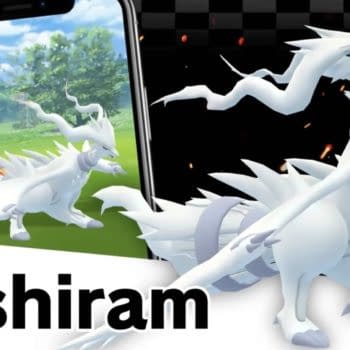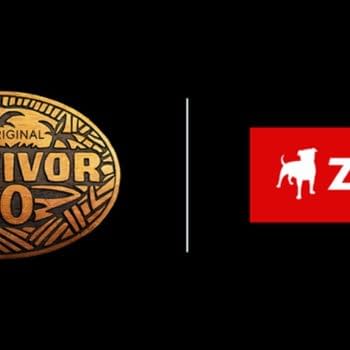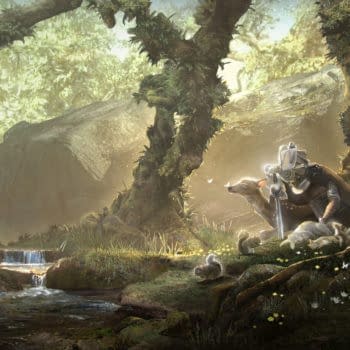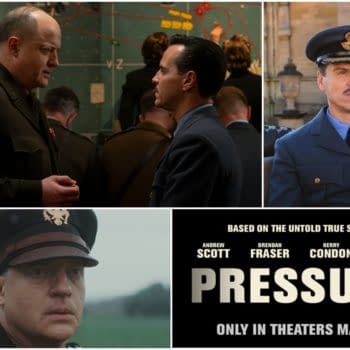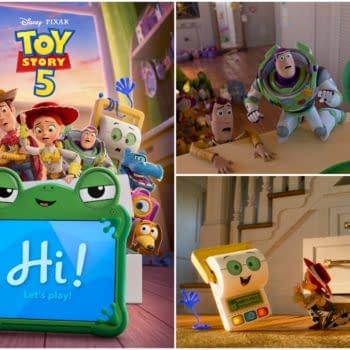Posted in: Games, Movies, Video Games | Tagged: AMA, ask me anything, dungeons & dragons, dungeons and dragons, entertainment, gaming, Mike Mearls, reddit, wizards of the coast
Mike Mearls – Head Of Dungeons And Dragons R&D Does Reddit AMA
By Christopher Helton
Mike Mearls, the head of Research & Development for Dungeons & Dragons at Wizards of the Coast did an Ask Me Anything at reddit the other day. Most of the questions asked were those things that you would expect from fans being given open access, but there were some good questions that were thrown into the mix as well. The reason that I find these thing interesting is that every now and then you get questions from a perspective of someone other than the seasoned interviewer, which means that some things get through the cracks.
There were no big surprises or reveals during his AMA, but there were still some interesting things for fans of the new fifth edition of D&D to find. I've picked through and highlighted some of the answers that Mearls gave that I thought were particularly interesting.
No answers were given about the DungeonScape app suite, the online and app-based tools being developed as character creation tools, losing their licensing, but I would not have expected a clear answer on that.
If you follow the link at the top of this piece you can find the AMA in its entirety.

Similar to this was the questions about the influence of the OSR (Old School Renaissance), an online "movement" gathered mostly around blogs and social media to discuss and play the older editions of roleplaying games, as well as create new material for them, on the new edition of D&D. User DrRotwang asked "How influential was the OSR in guiding 5th? I know that guys like Zak Smith had input, but what was WotC's impetus to listen to him — to us — in the first place?" And Mearls answered "It's really about getting back to the core roots of RPGs, and seeing how things changed for both the better and worse over 40 years. There are a lot of assumptions that became embedded in RPG design that have been unchallenged. Looking back and really studying RPGs – both new and old – helped give us a sense of what we had to keep and what prior elements of the game needed to be re-emphasized."
User hans_co asked a similar question about the influence of the OSR and expanded to ask about the influence of indie roleplaying games upon the new edition as well. Mearls responded with "The concept behind the OSR – lighter rules, more flexibility, leaning on the DM as referee – were important. We learned a lot playing each edition of D&D and understanding the strengths and weaknesses each brought to the table. Similar to the OSR, I think indie games bring lighter rules via focus and an emphasis on storytelling to the table that we learned a lot from. While a traditional RPG like D&D by necessity has a much broader focus than traditional indie games, there's a lot to learn there in being clear and giving people a good, starting goal or framework to work within. For OSR stuff, we drew directly on older editions of D&D. In terms of indie games, or games cut from that cloth, Dungeon World, Fate, and the GUMSHOE engine leap to mind. For more traditional RPGs, Warhammer FRP (hello, backgrounds!) and Pendragon definitely had their say on the game. Runequest and Rolemaster had an influence via 3e. The fun part was taking those design ideas and looking at how they'd work within a D&D context."
A few of the classic D&D settings were asked about. "Planescape is definitely on the radar. It's a great setting on its own, plus it is easy to link it to our other settings. That makes it a great direction to expand into." On the long time question of porting the settings from the Magic: The Gathering game into Dungeons & Dragons game, Mearls said "Porting Magic settings to D&D would be cool, but we also have a lot of D&D material to work through first. That's the biggest barrier – we have enough D&D material to last us a long time."
From a design standpoint, user Abdial asked "Were there any features in DnD that you wanted to remove or heavily alter, but couldn't because they have been grandfathered in for so long?" Mearls answers were interesting, to say the least. "There actually aren't too many traditional pieces I wanted gone. It was more stuff I would've added to the game but couldn't for reasons of time, budget, and priorities. Probably the only mechanic I'm not crazy about is XP and leveling. If I could, I'd build a system where gaining a new class feature is driven by story-based prerequisites. Like, you can't learn to cast fireball until you've defeated a fire elemental and captured its essence, or after slaying the orc king a fighter can master a new battle axe technique." He also said that he would personally want a "few more classes and races – goliaths, a fey race that isn't an elf, centaurs dropped to size Medium and made a playable race; for classes, really nail down Psionics in a way that makes them fit with fantasy cleanly to the point that they can be in the Player's Handbook without confusing people."
To continued questions about PDFs and ebooks, Mearls' best response was probably "We're definitely looking at PDFs, ebooks, and other digital platforms, but no news yet. The goal with anything along those lines will be grow D&D, not just sell ebooks to people who already play the game, so we're putting a lot of work into figuring out that side of the equation."
When asked about the future of the D&D line, Mearls did give an answer that was echoed in a couple of other responses given later in the AMA. Does this mean that we might see an "Against The Mind Flayers" styled campaign coming from Wizards of the Coast? Maybe. "I'll give you an example of a theoretical expansion. Let's say we wanted to do psionics. We'd tie that to a campaign you can play, maybe one centered on mind flayers or a similar foe. The psionic sourcebook would be the player's companion to the DM's mind flayer campaign. The sourcebook would have all the info for creating psionic characters, along with world material for players who are creating characters for the mind flayer campaign. The player's book might also have a chapter written from an in-world perspective on psionics and psionic monsters, the kind of information that a character might have access to or have heard. You can expect us to do one or two such products a year, to give people enough time to play through a campaign without overwhelming them with new options." The answer does tell us that the development team seems to be thinking about the impact of continued supplements on the staying power of a game line.
Christopher Helton is a blogger, podcaster and tabletop RPG publisher who talks about games and other forms of geekery at the long-running Dorkland! blog. He is also the co-publisher at the ENnie Award winning Battlefield Press, Inc. You can find him on Twitter at @dorkland and on G+ at https://plus.google.com/+ChristopherHelton/ where he will talk your ear off about gaming and comics.













